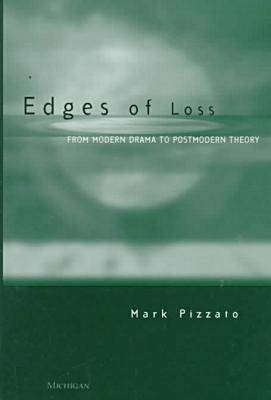
- Retrait gratuit dans votre magasin Club
- 7.000.000 titres dans notre catalogue
- Payer en toute sécurité
- Toujours un magasin près de chez vous
- Retrait gratuit dans votre magasin Club
- 7.000.000 titres dans notre catalogue
- Payer en toute sécurité
- Toujours un magasin près de chez vous
Description
One of the curious characteristics of much postmodern theory is the attention it has paid to theater, an art form seemingly more in danger of extinction today than perhaps ever in its history. Mark Pizzato interrogates this curiosity, revealing it as an obsession with the destruction of social institutions and the "universal truths" of modernism. Edges of Loss explores the theatrics of loss in the minds of authors, performers, spectators, and the conflicting social orders of perversion, taboo, and the sacred. Theater as a marginal form reveals the unstable edges of community and the ways such community is imagined and staged.
The author initiates his approach to the question of loss through an investigation of the psychohistory of modern and postmodern stages: the return to ritual chorus and the belief in poetry in Eliot's modern poetic drama, the nostalgia for a lost ritual "womb" in Nietzsche's proto-postmodern views of ancient tragedy. Building on this approach, Pizzato employs the techniques of psycho-biography to reveal a common concern among both modernists and postmodernists for the stage edge as a border, a gap, an ambiguous juncture between the artist as a self and the artist as a voice of the community. In the end, Edges of Loss establishes this concern as a concern for the lost mother and a lost symbiosis with something deeper and more true.
"An extraordinary and original study. . . a book that wrestles with many current issues in theater and theory without submitting to the common vagaries of those fields of study." --Anthony Kubiak
Mark Pizzato is Assistant Professor, Department of Dance and Theatre, University of North Carolina at Charlotte.
The author initiates his approach to the question of loss through an investigation of the psychohistory of modern and postmodern stages: the return to ritual chorus and the belief in poetry in Eliot's modern poetic drama, the nostalgia for a lost ritual "womb" in Nietzsche's proto-postmodern views of ancient tragedy. Building on this approach, Pizzato employs the techniques of psycho-biography to reveal a common concern among both modernists and postmodernists for the stage edge as a border, a gap, an ambiguous juncture between the artist as a self and the artist as a voice of the community. In the end, Edges of Loss establishes this concern as a concern for the lost mother and a lost symbiosis with something deeper and more true.
"An extraordinary and original study. . . a book that wrestles with many current issues in theater and theory without submitting to the common vagaries of those fields of study." --Anthony Kubiak
Mark Pizzato is Assistant Professor, Department of Dance and Theatre, University of North Carolina at Charlotte.
Spécifications
Parties prenantes
- Auteur(s) :
- Editeur:
Contenu
- Nombre de pages :
- 240
- Langue:
- Anglais
- Collection :
Caractéristiques
- EAN:
- 9780472109142
- Date de parution :
- 03-08-98
- Format:
- Livre relié
- Format numérique:
- Genaaid
- Dimensions :
- 163 mm x 236 mm
- Poids :
- 594 g







